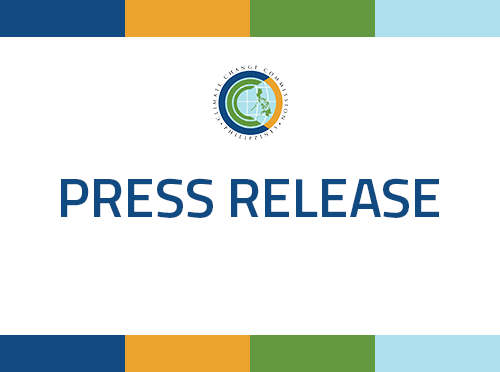
August 30, 2020 Sunday

MANILA, 31 August 2020 — The Climate Change Commission (CCC) urged national and local leaders to adopt green COVID-19 recovery plans, emphasizing on the need to integrate climate resilience and sustainability as core strategies and principles, in order to build back better and ensure a safer and more secure future for all Filipinos.
As the country strives to contain the rising COVID-19 cases in the country, the CCC emphasized that building back better should be the country’s way forward to overcome not only the challenges of the pandemic but also the threats brought about by what many considers as the more threatening phenomenon, which is the global climate crisis.
These factors implore governments to reinvigorate their economies once again in a manner that should not further degrade the state of our climate and environment than it already is.
Citing a study on “Will COVID-19 fiscal recovery packages accelerate or retard progress on climate change?” conducted by Oxford Smith School of Enterprise and the Environment, the CCC highlighted that the COVID-19 crisis represents a dramatic shock to the global economy that will affect progress on climate change in multifaceted ways.
The CCC therefore underscored that economic recovery from COVID-19 crisis must be centered on ecological investment and climate resilience-building programs, such as supporting low-carbon technologies, eco-construction, eco-design policies and investments in research and development for ecological purposes, investment in education and training to address immediate unemployment from COVID-19, and natural capital investment for ecosystem resilience and regeneration.
The CCC also cited the statement by the Global Commission on Adaptation (GCA)—signed by world leaders, including former United Nations Secretary-General Ban Ki-moon, UN Framework Convention on Climate Change (UNFCCC) Executive Secretary Patricia Espinosa, and House Deputy Speaker Loren Legarda—urging countries to build back better from the pandemic and to incorporate climate resilience into economic recovery packages.
The CCC supported the GCA’s call for accelerated progress in seven areas: locally-led adaptation, urban resilience, water resources management, social safety nets, food security, nature-based solutions, and disaster prevention. They also highlighted the call to “seize the opportunity to transform how we understand, plan, finance, and respond to risks” and to “integrate climate resilience into decisions at all levels of government and by businesses, communities, and households.”
With this, the climate body emphasized that the climate and environmental policies and laws in place must be enforced and inform the crafting of the country’s economic recovery packages to address the present and anticipate future challenges to our climate and environment, while promoting better health and wellbeing to all Filipinos.
In these challenging times, the CCC encouraged public and private sector leaders to foster a more people-centered approach to governance, promote inclusiveness, especially to the vulnerable and marginalized, and scale up sustainable initiatives to ensure that no one gets left behind.